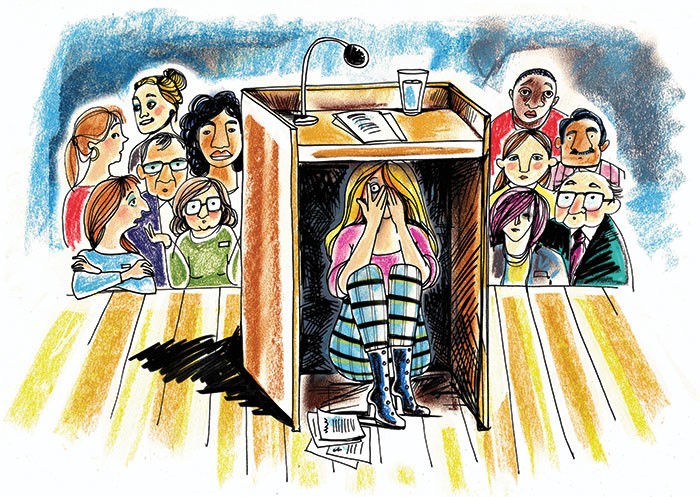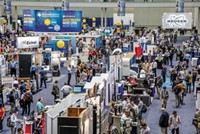Advertisement
Grab your lab coat. Let's get started
Welcome!
Welcome!
Create an account below to get 6 C&EN articles per month, receive newsletters and more - all free.
It seems this is your first time logging in online. Please enter the following information to continue.
As an ACS member you automatically get access to this site. All we need is few more details to create your reading experience.
Not you? Sign in with a different account.
Not you? Sign in with a different account.
ERROR 1
ERROR 1
ERROR 2
ERROR 2
ERROR 2
ERROR 2
ERROR 2
Password and Confirm password must match.
If you have an ACS member number, please enter it here so we can link this account to your membership. (optional)
ERROR 2
ACS values your privacy. By submitting your information, you are gaining access to C&EN and subscribing to our weekly newsletter. We use the information you provide to make your reading experience better, and we will never sell your data to third party members.
Careers
Chemjobber shares his secrets to overcoming a fear of public speaking
With practice, you can turn your greatest weakness into a strength
by Chemjobber
March 14, 2018
| A version of this story appeared in
Volume 96, Issue 12

What’s your greatest weakness? Some chemists might admit that it’s public speaking. There’s nothing quite like getting up in front of people that makes the most confident conversationalists’ voices quiver, their hearts palpitate, or their hands sweat. Sure, I can get butterflies in front of a crowd, but for some people, public speaking elicits a huge amount of worry, fear, and anxiety.
Trouble is, as a chemist, you can’t hide from communicating the science that you are doing, especially when you are a researcher. Very few of us will present our work in Stockholm, but most of us will at some point be asked to get up in front of our peers, our departments, or other chemists at a technical conference and spend anywhere from 15 to 50 minutes talking about the work we have done, its novelty, and its significance.
So how do you get comfortable with speaking in public? It starts with having confidence in yourself and the science you are doing. Before you have to give a talk about your science in a consequential setting like a scientific conference, learn to talk to your coworkers about your research.
Graduate school is a wonderful place to practice public speaking—for example, at group meetings, subgroup meetings, and departmental seminars. You might consider joining a public speaking group like Toastmasters International, especially if English is not your first language. You can also take advantage of opportunities to give talks and present posters at regional or national ACS meetings.
Does the thought of 40 pairs of eyes make you very tense? If so, you’re not alone. When my grandfather was in the military, it was suggested to him that he think of addressing his soldiers as if he were addressing a field full of lettuce. That probably works great when people are standing at attention, but what if you have an audience full of day dreamers, phone checkers, and just a few listeners?
Those of us who get distracted by the audience have a few options. You can look at your slides. You can look above the audience—which is what I often do. Or better yet, you can actually look at the audience. Experienced presenters whom I have talked to have suggested focusing on someone who is familiar or has a friendly face and directing your nervous gaze on that person.
When you give a presentation that involves slides, don’t read directly from the screen. And make sure that people can read your slides. In fact, the fewer number of words on your slides, the better. If you plan to say, “I know this is a bit of an eye chart,” you need to make your chart bigger. People are often tempted to read their slides very fast. This can exhaust the audience. If you have a lot of work to present, think about ways to condense it.
At a conference, you never know who is in your audience, so you’ll want to be prepared. If you’re at an ACS national meeting, or even a smaller group like a Gordon conference, you might be giving your presentation to someone who could be a hiring manager or a potential coworker.
That brings us to a different kind of presentation: job interviews. You have to do more than just show a hiring manager that you’re a competent chemist. You also have to convince your potential coworkers that you can communicate with them, that they can learn things from you, and that you can contribute to discussions. If you’re attending an ACS national meeting, you can sign up for a mock interview at the career fair.
Even the most eloquent among us will have a bout of nervousness from time to time. But with forethought, preparation, and practice, anyone can become more comfortable speaking in front of an audience of five or 500. Once you’re comfortable sharing your chemistry with the world, your greatest weakness could soon become your greatest strength.
Chemjobber is an industrial chemist who blogs about the chemistry job market at chemjobber.blogspot.com. Find all his columns for C&EN and suggest future topics at cenm.ag/benchandcubicle.
Views expressed are those of the author and not necessarily those of C&EN or ACS..






Join the conversation
Contact the reporter
Submit a Letter to the Editor for publication
Engage with us on Twitter